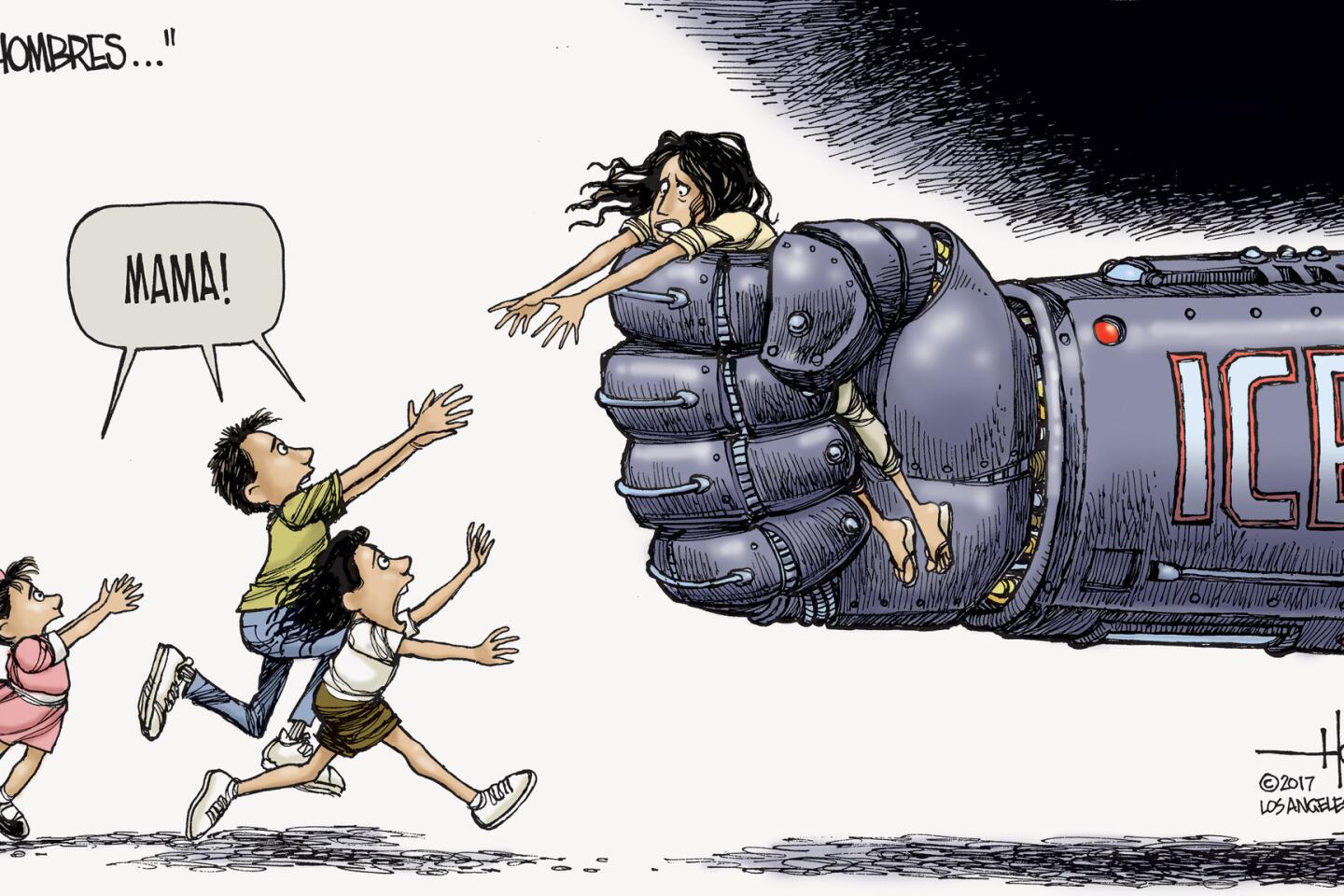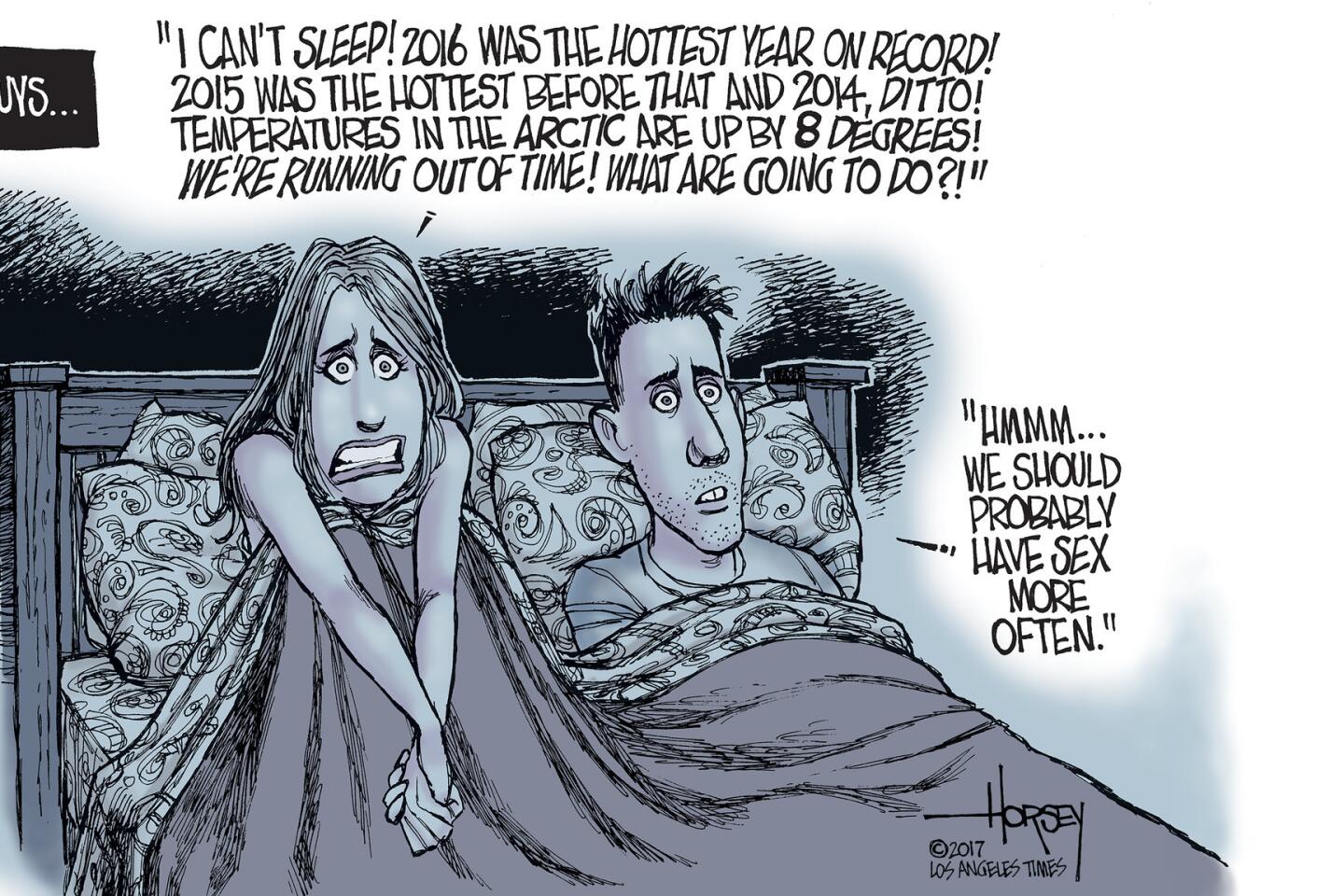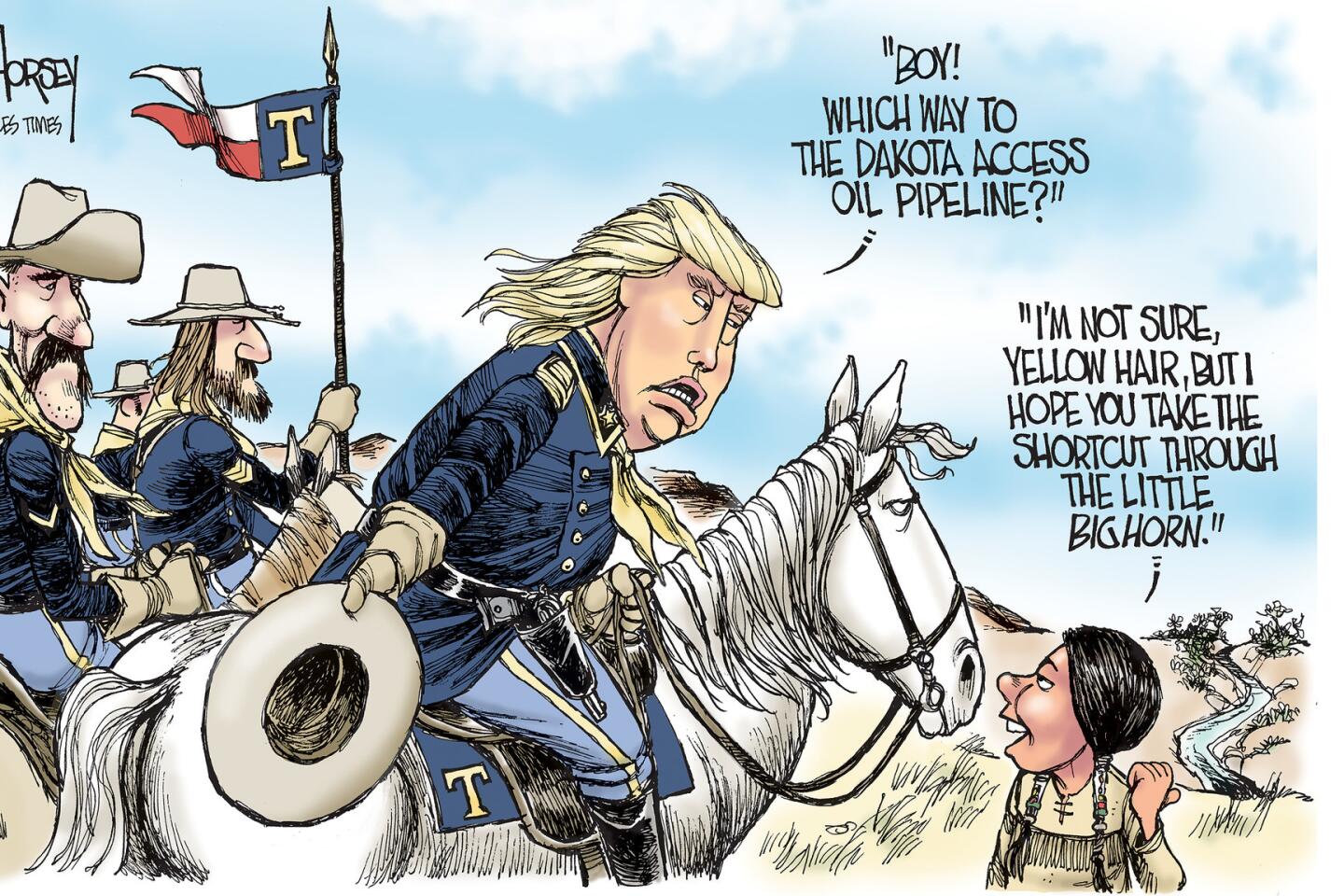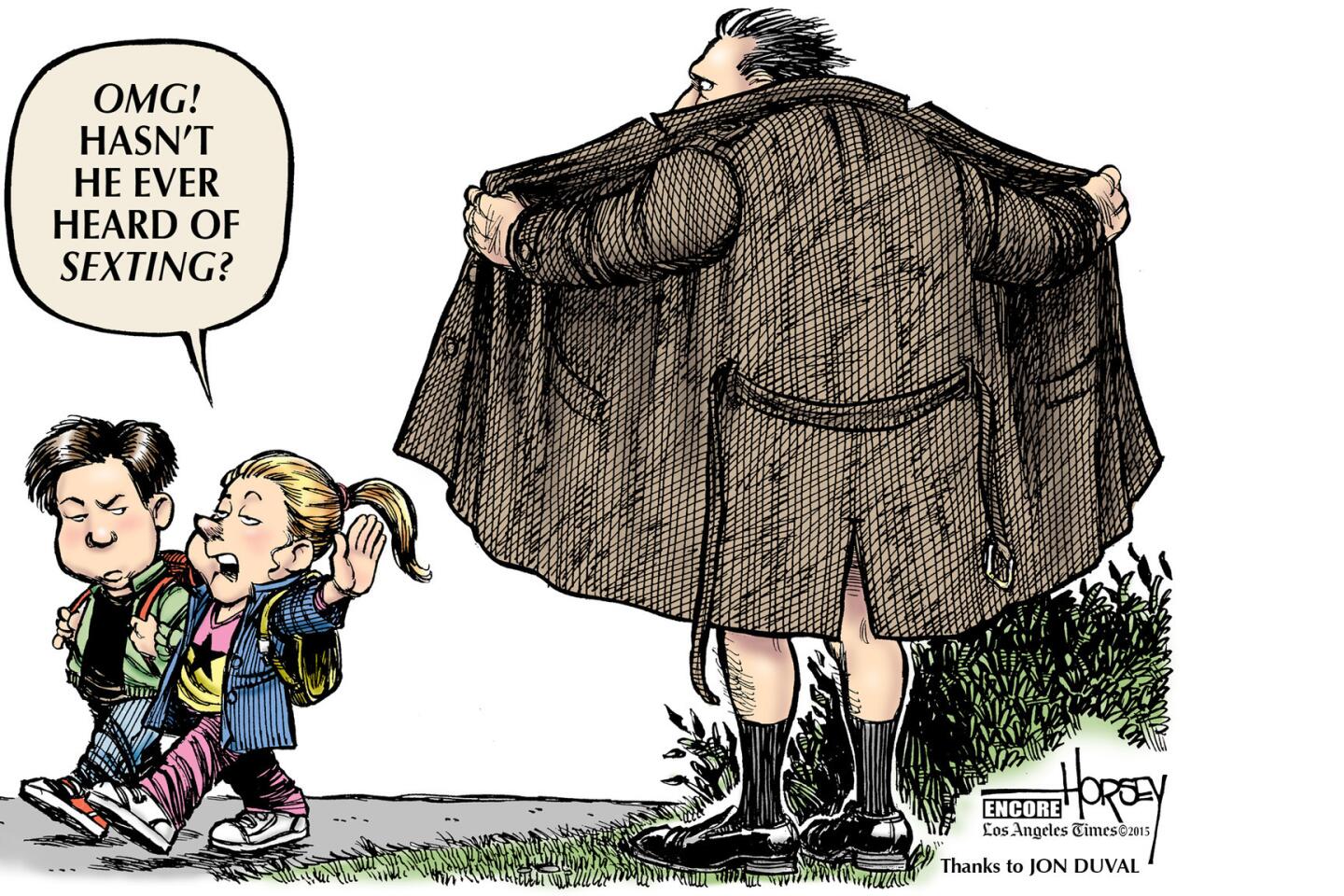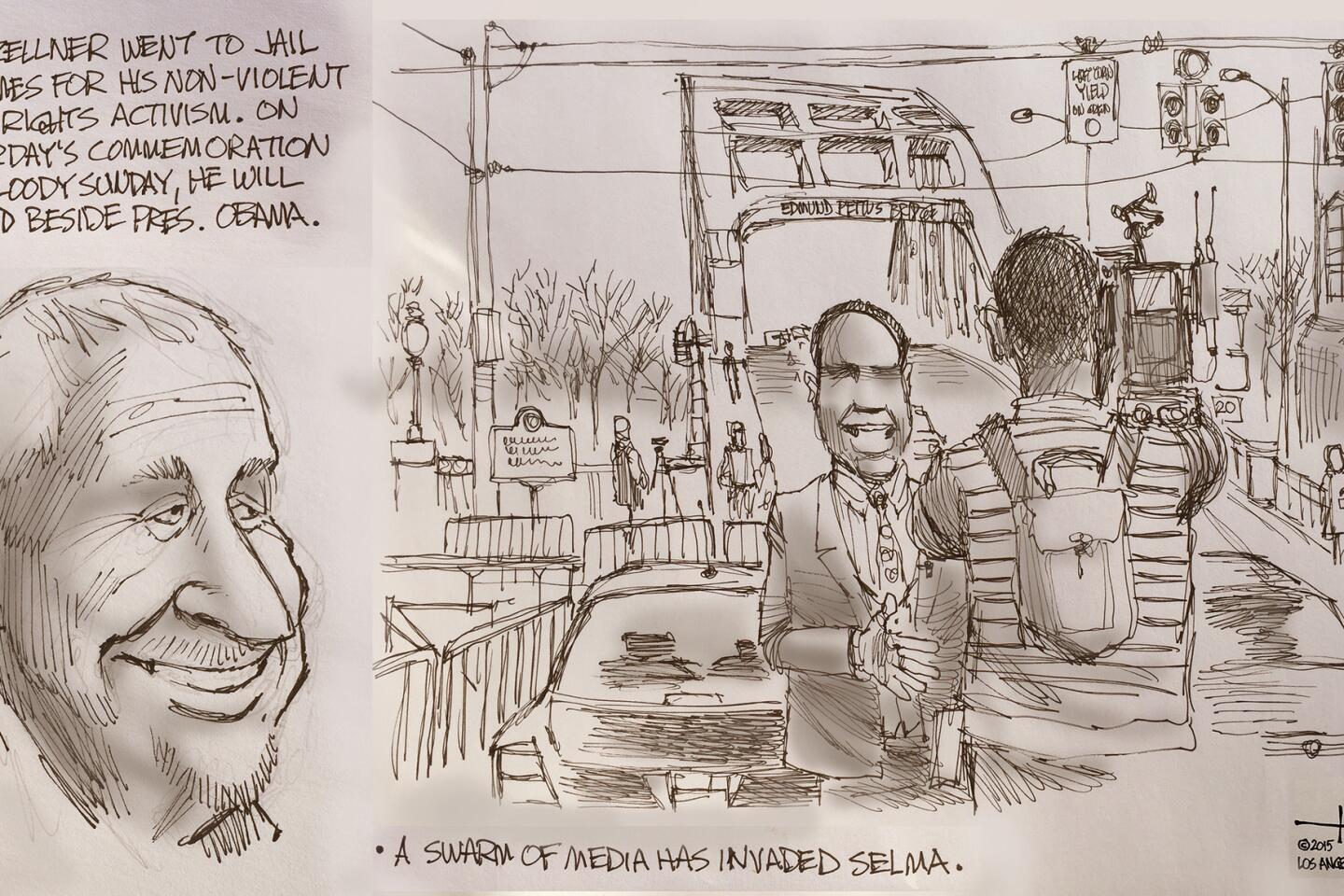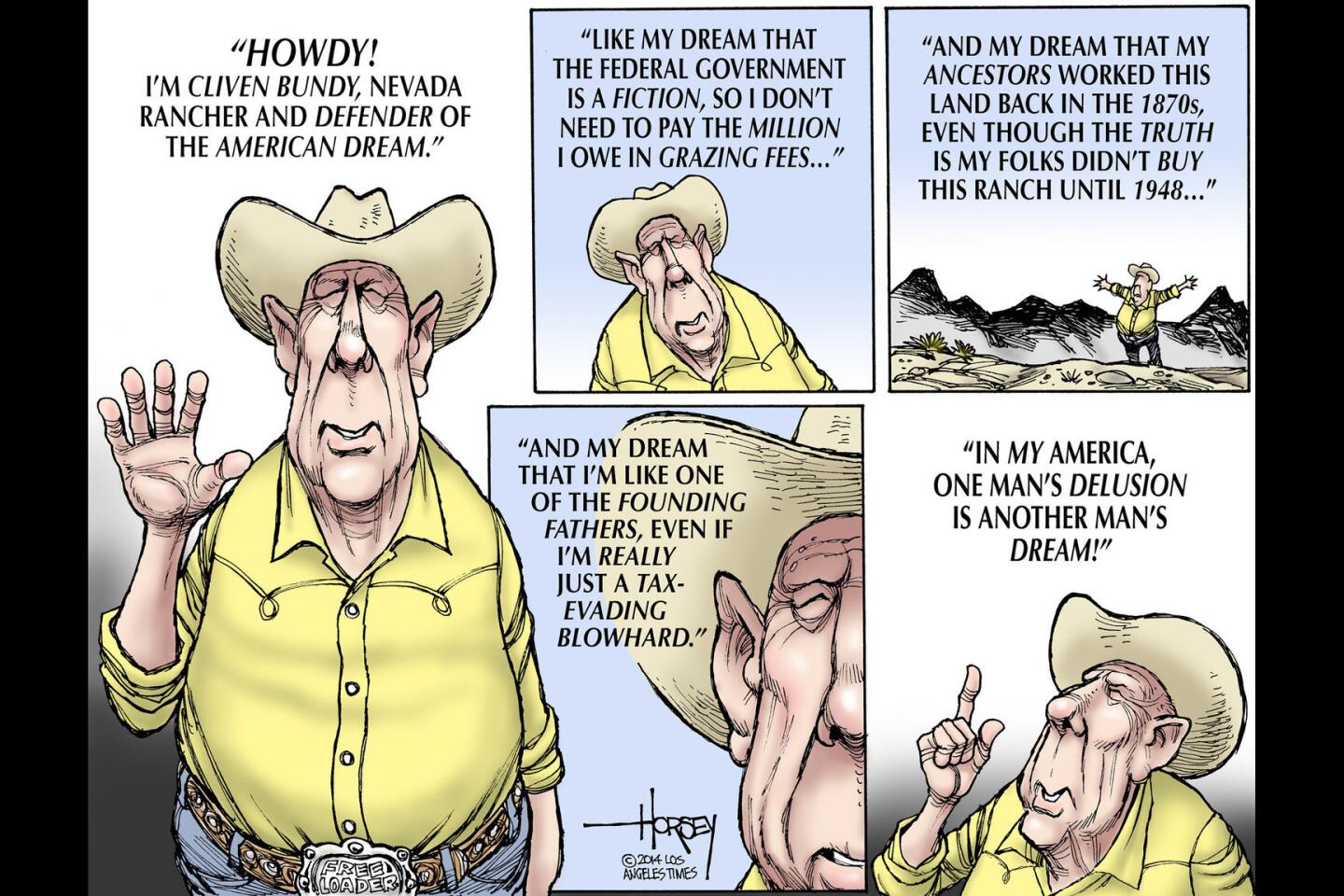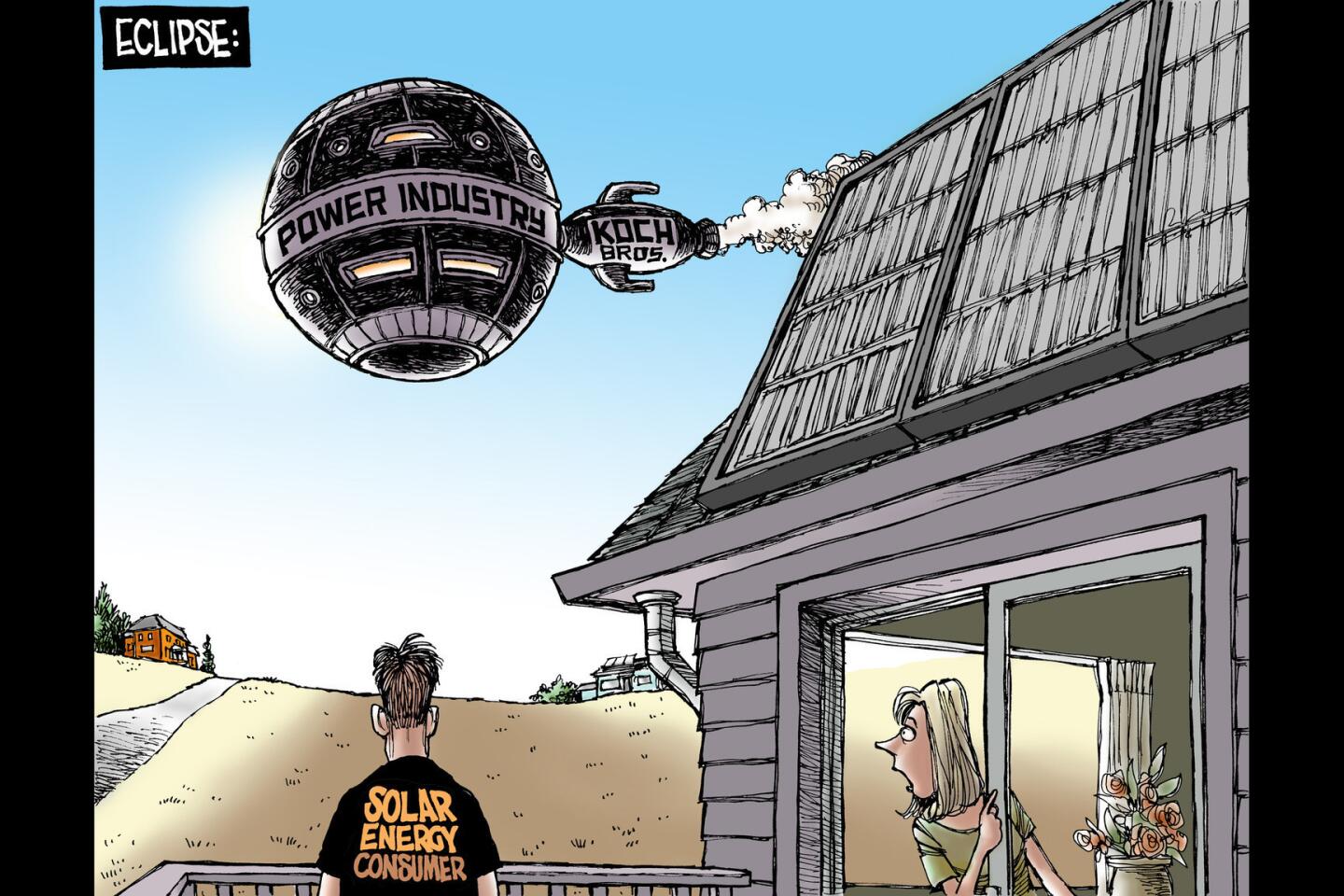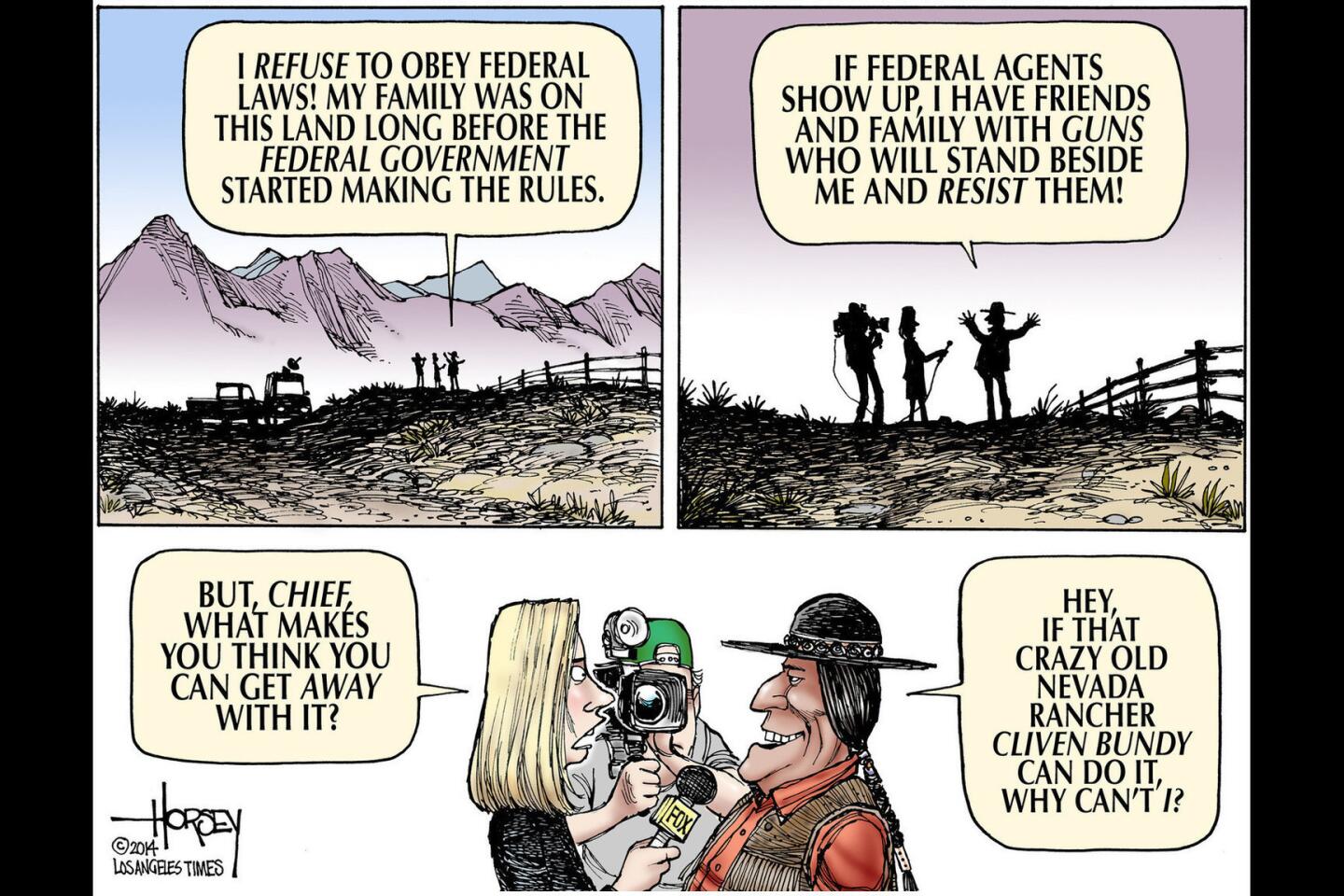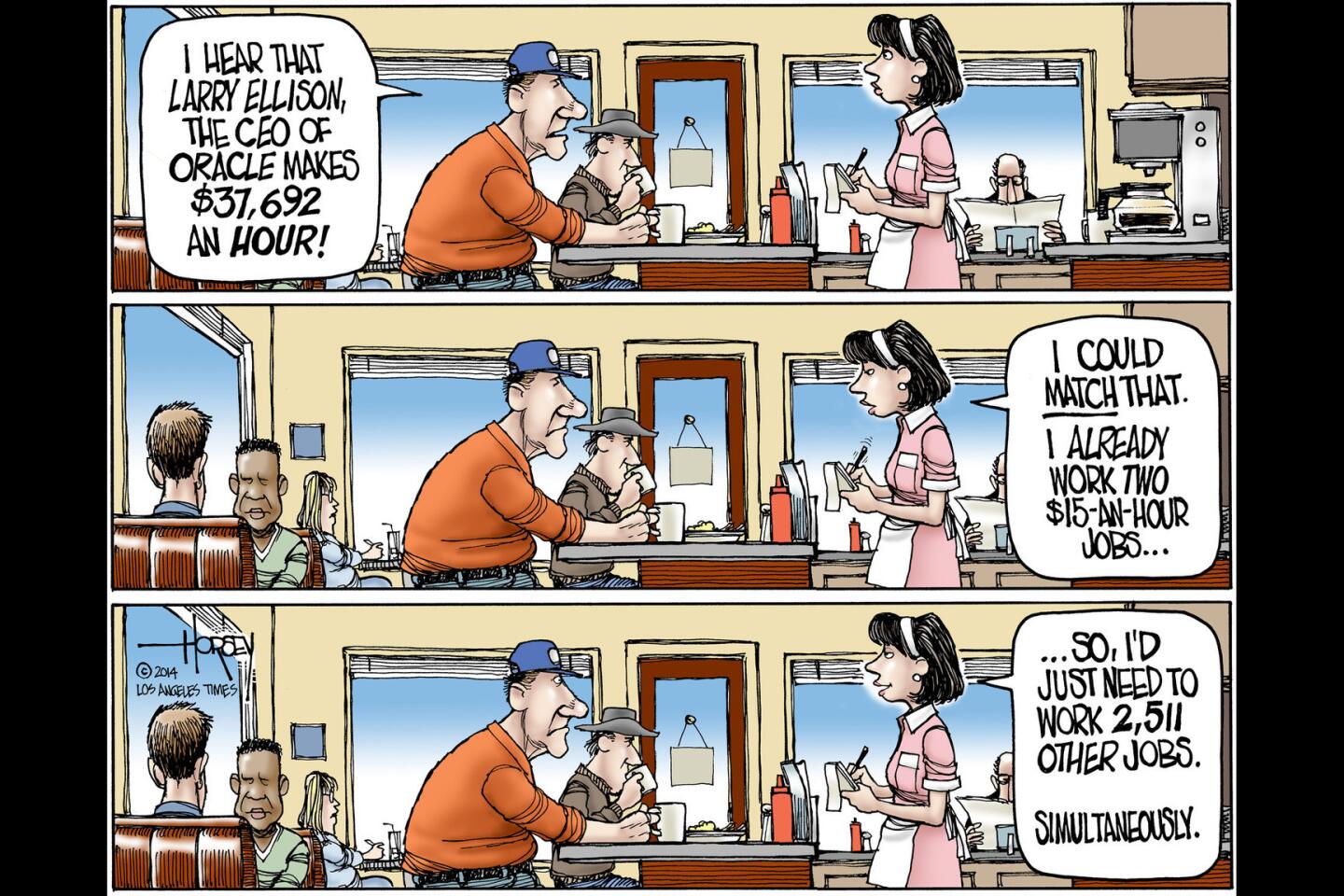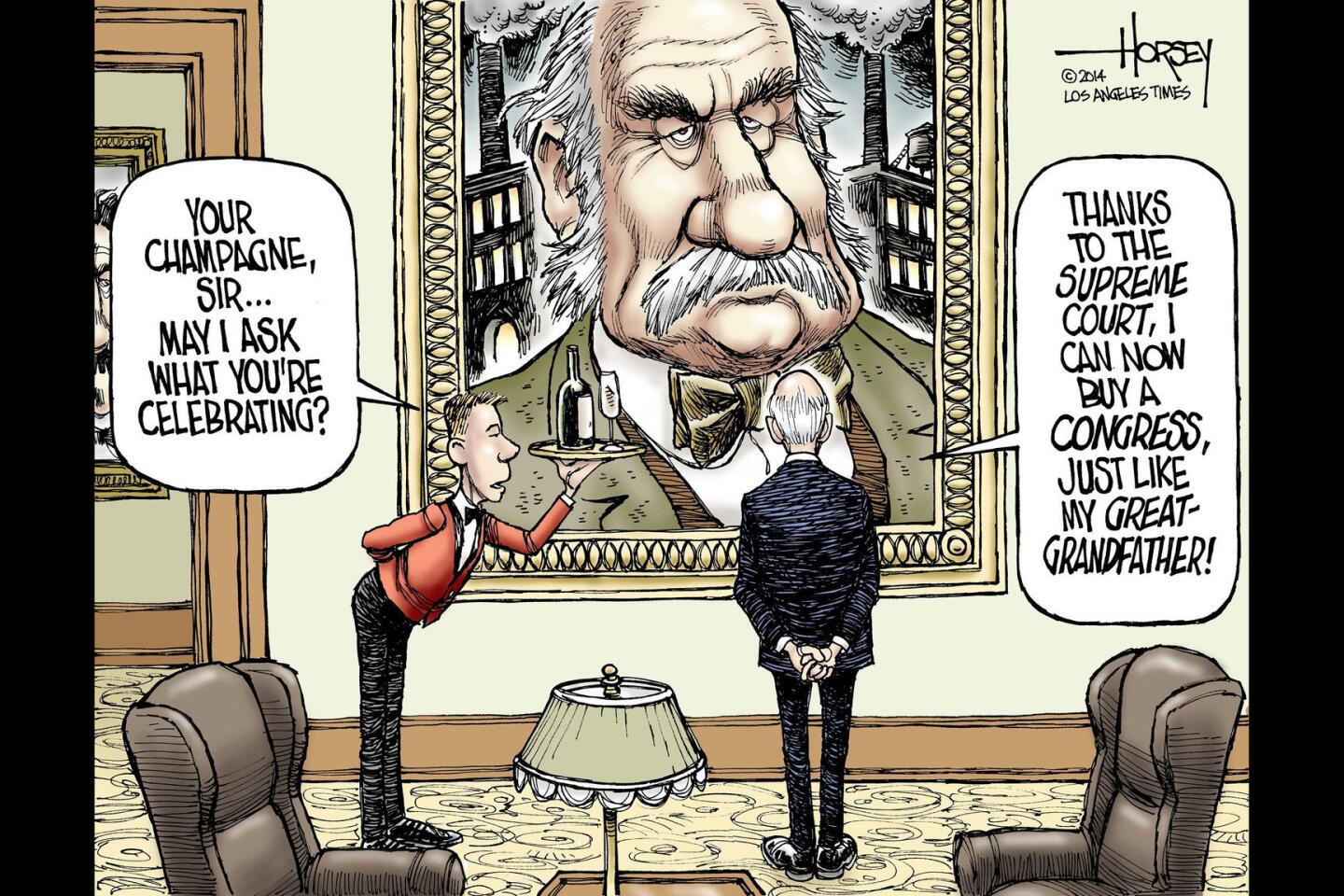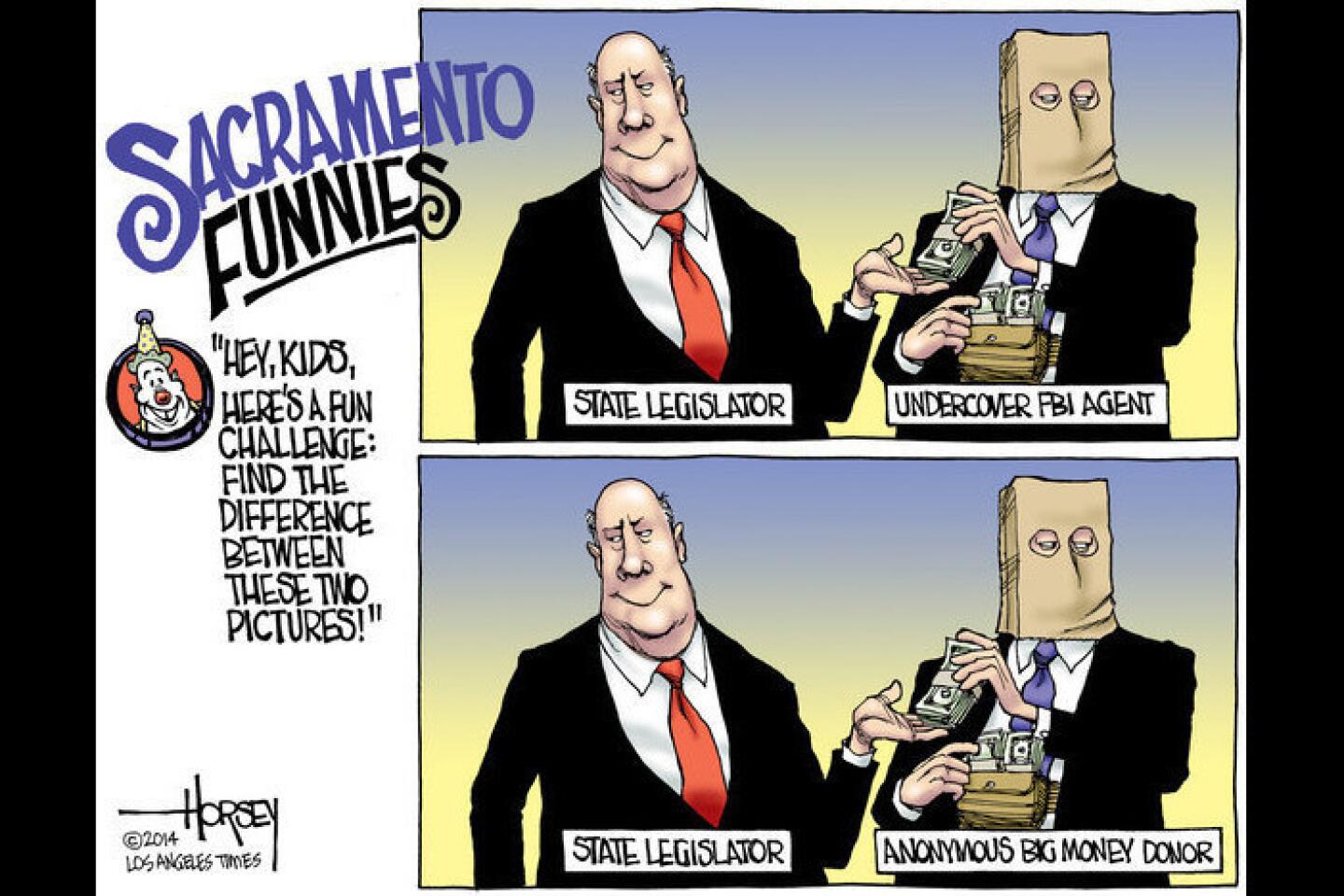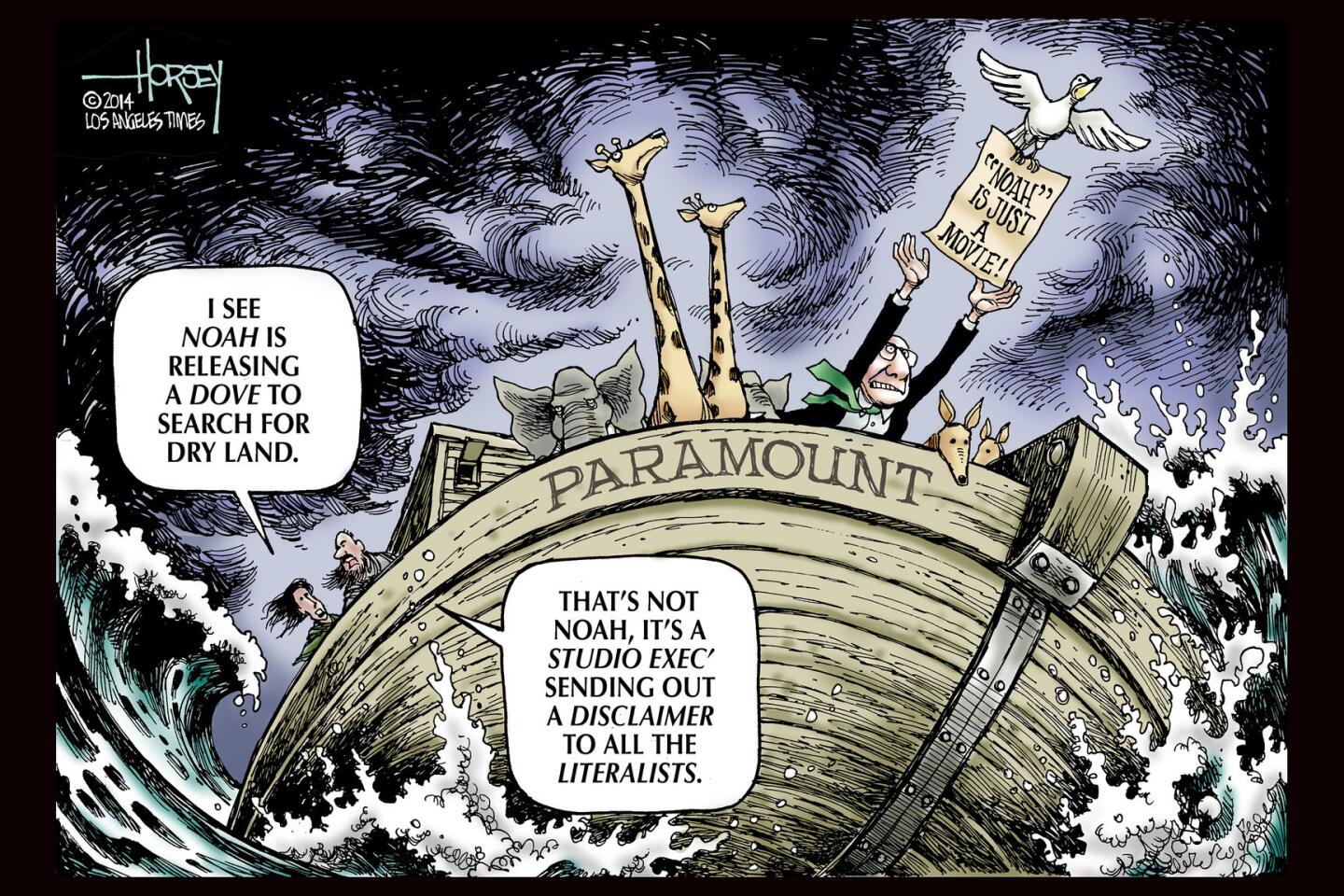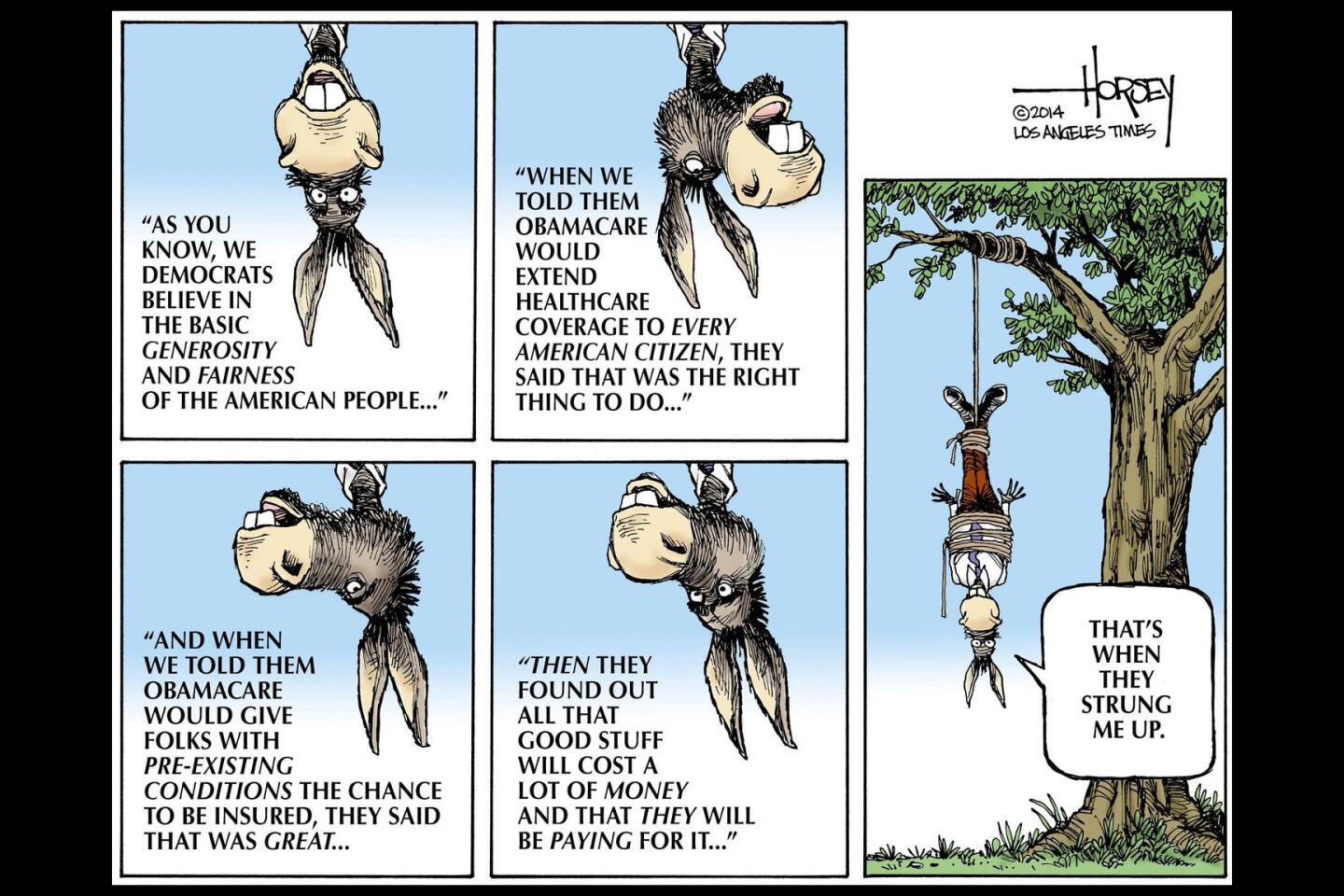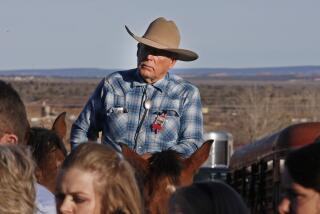George Washington would not side with the West’s sagebrush rebels
The armed militants who have taken over a national wildlife refuge in southeast Oregon need to study their country’s earliest history. They justify their actions with a bogus interpretation of American law rooted in ideas born in the Reconstruction-era South that essentially denies the authority of the federal government to do much of anything. These misguided sagebrush rebels need to learn that the issue of the central government’s power was largely settled back when George Washington was president.
In order to help pay off the big national and state debts incurred during the American Revolution, Washington’s treasury secretary, Alexander Hamilton, proposed a tax on whiskey and other distilled spirits that Congress approved in 1790. The reaction to the tax out on the Western frontier — which, in those days, was Kentucky and western Pennsylvania — was negative and violent. Militias were formed, tax collectors were tarred and feathered, supporters of the tax were driven out of communities and armed confrontations ended with property destroyed and people killed.
This insurrection came to be known as the Whiskey Rebellion and it did not die down until Washington sent in a federalized militia force numbering close to 13,000 men.
The grievances of the militants back than would not be unfamiliar to the people who have seized the government buildings at the Malheur National Wildlife Refuge. The Westerners of the 1790s believed only local governments had the authority to tax and they owed nothing to the federal government (then located in not-so-far-off Philadelphia). They also resented Easterners imposing on them a fee that big distillers could easily pay but that was more onerous for farmers and people of lesser means who made their own whiskey and often used it as an alternative currency in their barter economy.
SIGN UP for the free Opinion newsletter >>
Many of today’s rural Westerners resent the grazing fees and environmental restrictions placed on them by the Bureau of Land Management and other federal agencies. This Sagebrush Rebellion has been underway with varying degrees of intensity since the 1970s, when conservationists finally got the feds to institute programs to better protect and preserve endangered western lands and wildlife. While this made perfect sense to people in cities far away, the ranchers, farmers, miners and drillers who were used to doing whatever they wanted with the land were up in arms — figuratively and, now, literally.
Until this latest incident, the most notorious rebellion against federal authority was the armed standoff between federal agents and a ragtag band of cowboys and gun-toting militants defending Nevada rancher Cliven Bundy’s defiant, decades-long refusal to pay grazing fees to the BLM. Now, two years later, two of Bundy’s sons, Ryan and Ammon, are ringleaders in the occupation of the wildlife refuge.
The Bundy boys and their confederates claim God is telling them what to do, but the voices they hear are coming from right-wing talk radio and from a variety of extremists with curious interpretations of the U.S. Constitution. They want the federal government to give up ownership of millions of acres of western lands and return those lands to “the people.” Of course, it can be argued that the land already belongs to the people — everyone from Malibu to Montauk — and that turning vast areas of the country over to local governments and private owners will only guarantee that big extraction industries and careless ranching operations will exploit and destroy the nation’s physical legacy, just as was happening 115 years ago before Theodore Roosevelt and the federal government first began stepping in to protect and manage the land on behalf of all U.S. citizens.
That is not the way the Bundys see things, of course. Unelected and unschooled in legal precedents, they still claim to speak for everybody. “It’s up to us, We the People, to restore and defend the Constitution,” Ammon Bundy said in a tweet on Monday.
George Washington, whose name is on that Constitution, would disagree.
MORE FROM DAVID HORSEY
ISIS takes on the world and is bound to lose
New animation: Two cartoons and one big political divide in the USA
Ragged old year brought hope on climate change and same-sex marriage
More to Read
A cure for the common opinion
Get thought-provoking perspectives with our weekly newsletter.
You may occasionally receive promotional content from the Los Angeles Times.











